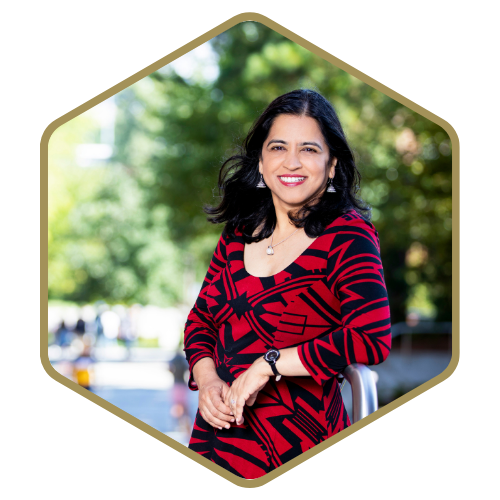Georgia Tech’s Ph.D. in Economics is a STEM-certified doctoral program with a foundation in applied microeconomics and causal inference. The curriculum includes one year of core courses, one year of field courses, electives, and workshops, and three years of dissertation research.
Mentorship is an integral part of our Ph.D. program. Throughout all five years you will have a faculty mentor to help guide you through the program and assist with any career-related questions you might have.
Our faculty is active and engaged in our core research areas — energy and environmental economics, health economics, development economics, and international trade — and they work closely with students to guide research, co-author papers, and ensure timely completion of dissertations.
Core Courses
Our Ph.D. program begins with rigorous training in microeconomic theory and quantitative methods. First year students complete six core courses covering microeconomic theory, econometric theory, mathematics, and data analysis techniques.
See our full list of graduate course descriptions.
Specialization Fields and Electives
Second year students take two additional electives and choose two specialization fields to shape their academic path going forward. Each field consists of two three-hour courses combining theory and practice. Our specialization fields are:
- Energy and environmental economics
- Health economics
- Development economics
- International trade
Ph.D. Minor
To foster interdisciplinary research, all Ph.D. students at Georgia Tech must complete a degree minor consisting of three courses in a discipline outside of their own.
This allows you to take classes at Georgia Tech’s renowned College of Engineering, our top 25 business school, or in other highly-ranked fields such as artificial intelligence, data analytics, and computer science. Integrating insights from these different fields into your work can bring new perspectives, creativity, and depth to your research.
Dissertation Research
Meet current Ph.D. students in the School of Economics and explore recent Ph.D. dissertations to learn more about the kind of work they do.
At this stage you will begin focusing on the third-year paper project and dissertation research. This means transitioning from working with faculty mentors to a more traditional advisor who will help you shape and refine your research ideas.
However, our emphasis on mentorship remains. Research groups in each field provide opportunities to collaborate with a broader network of faculty and peers. This often leads to students co-authoring papers with faculty members outside of their primary advisor, broadening their research experience and professional connections.
Economics faculty lead and participate in the Climate, Environmental, and Resource (CLEAR) Economics Lab, the Health Economics and Policy Innovation Collaborative (HEPIC), and the Energy Policy and Innovation Center. They also direct the Health Care Consolidation Project and co-organize multiple conferences each year. The Ivan Allen College is home to 20+ research centers across the six Schools.
Advising
Visit our School of Economics faculty page and filter by “professors” to explore potential advisors and learn more about their work. For example:

In Energy and Environmental Economics, Casey Wichman works on issues at the intersection of environmental and public economics.
His research focuses on how people interact with the natural and built environment, and what that behavior reveals about the value of environmental amenities. It spans water and energy management, climate change impacts and policy, valuation of environmental resources and infrastructure, urban transportation, public goods provision, and outdoor recreation.

In Health Economics, Jason Lindo’s research centers on health (care, behaviors, and outcomes), employment shocks, family dynamics, and youth.
This work includes studies of the Colorado Family Planning Initiative, the effects of laws increasing the amount of travel needed to obtain reproductive health care, and the impacts of changing economic circumstances on marriage, fertility, and child maltreatment.

In Development Economics, Shatakshee Dhongde focuses on the economics of poverty.
She was one of the first scholars to provide consistent estimates of multidimensional poverty in the United States, which includes deprivations in dimensions such as education, housing, or health which are often not captured by income levels.

In International Trade, Tibor Besedes’ research centers on international trade and experimental/behavioral economics.
It includes the dynamics and stability of trading relationships between countries and factors determining duration of trade. He also studies how individuals make decisions in multi-attribute environments similar to decisions involving health insurance or drug coverage plan.
Guided Teacher Training
Many Ph.D. graduates go on to teaching and research careers in academia. Our guided teacher training and optional certificate give you the opportunity to teach your own courses here at Georgia Tech and gain valuable experience for the job market.
The priority admissions deadline for the Ph.D. in Economics program is Jan. 1, and international students are encouraged to apply one month early. Apply via the Graduate Education website or contact Justin Burkett, director of doctoral programs, to learn more.
